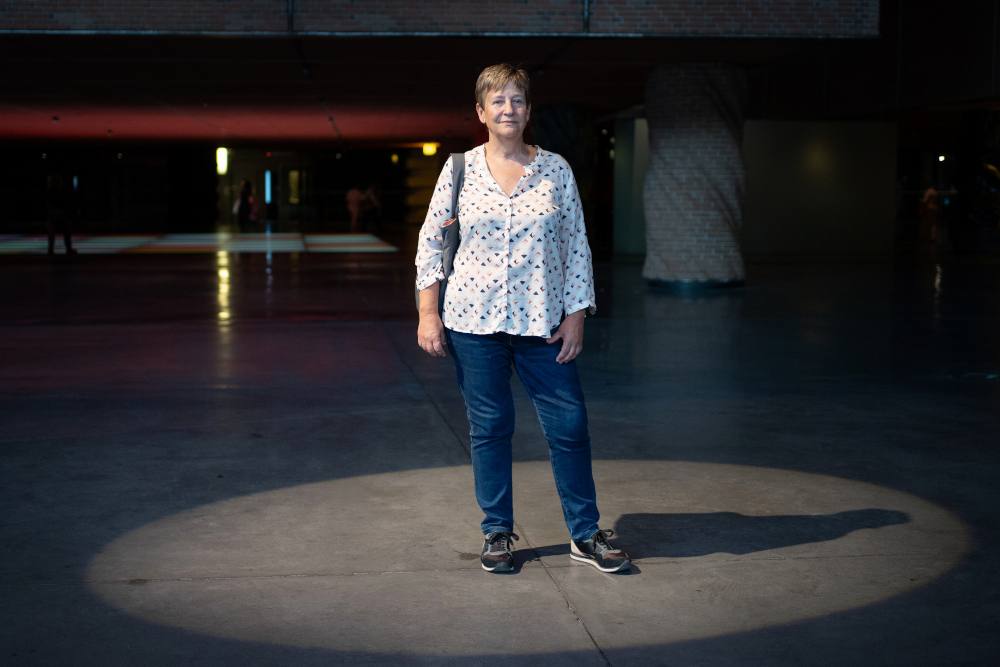
- Concha Castells Carrillo, a medical epidemiologist by profession (Bilbao, 1960), has held management positions in the management of Public Health for several years. President of the Association of the Right to Dignified Death for five years in the Basque Autonomous Community. We have approached with the excuse of having properly murdered and of talking about the Spanish Euthanasia Law that has entered into force this year.

Do we die with dignity in general?
No. We still die wrong. There is much to do in raising awareness and training of health professionals, because there is still a lot of ignorance and fear.
What is dignified death?That members
of our Association believe that everyone can die as they want, whenever they want and next to whatever they want. The moment you decide, your neighbors are around you, in peace and, if possible, asleep peacefully. What is important to us is the will. There is no dignified death if one cannot decide, if others decide that the time has come.
Should we accept that the context is, in any case, a deadly incurable disease or with terrible suffering?
We do not believe that the will to die should be respected in any situationn.Hay examples. For example, elderly people who think their lives are full, without serious health problems and who do not want to continue living. The key is the will, which includes, of course, voluntary suicide. Not a suicide caused by a mental illness or by a situation of despair, but rather thoughtful. But none of the countries of the world accept it.
Why do you say we don't die with dignity?
Because most of the time people die in the ICU without realizing that they are dying and unable to make decisions about the end of their lives. These decisions are made by the medical team or by the family, often with a pact of silence.
To hide the patient's real situation?
Yes. They agree not to provide you with information, hoping that it will be more harmful than beneficial. It's still very common.
And is it not regulated by any law?
[In the Spanish State] is illegal. Since 2000, the Law on Patient Autonomy establishes that the patient has the right to receive information that the medical team should provide. To him, not to the family.

In March, the Spanish Euthanasia Law was approved, which has been in force since June. We will talk about it, but, first of all, we will clarify what euthanasia is and what not. “Euthanasia” is a Greek word that means “good death.” Beyond this, society and this law accept the definition that the death demanded by a person on
more than one occasion by a situation of unsustainable suffering for her can be exercised by another. In other words, help is called for to kill. It is beyond this definition that the church and other reactive sectors criticize, which now all the elderly will be euthanasia. This cannot happen because a firm and clear will to kill must be expressed.
How many times is asking for death "over and
over"? For the purposes of this law, twice.
Does the law satisfy you?
No. The suffering it requires to demonstrate is too great and excludes serious chronic mental illnesses, as it is established that a disease that rapidly causes the extinction of life or entails a physical disability must always be involved. A quadriplegia, for example. We believe that the exclusion of mental disorders is a mistake, because for them there are people who suffer terrible suffering, who are suffering very serious illnesses without treatment.
He continues to criticize, otoi.Lo worse
of the law is that, even after the responsible physician and other doctor have agreed to a request for euthanasia, each case must be approved by a guarantee and evaluation committee. There is no such thing in other countries around the world where euthanasia is legal. And, of course, the agreements will depend on the people in those committees. It is up to the regional governments to appoint commissions; the law has been in force since June, and Andalusia [where the PP is] has not yet appointed the commission.
You know the CAPV better. Can we say anything about its composition?
It is curious that all the professionals who are part of the CAPV committee belong to some ethics care committee. We are surprised to think that a decision on death should be submitted to an ethical debate. If I want to die, I want to die, it's up to me to decide, and you don't have to question it, either from the ethical point of view or from anyone's point of view. Consider whether my case is in accordance with the law, and point.
However, is the law a step forward?
Yeah, and big. The vacuum will prevent many sufferings.
euthanasia is not spoken on the streets because the Government is not interested in disseminating the law. They seem to want to keep themselves in the intimacy of their home. No press conference has been held to say that the law has been passed. We have said this to the Health Advisor here, and we have also said it in the Basque Parliament, that rights must be known to all people. Otherwise, only those who know it will be able to do so. It has to be made known. In a meeting with the counselor, we found that they did not want to do so. Because there are many kinds of sensibility in society, or whatever.”